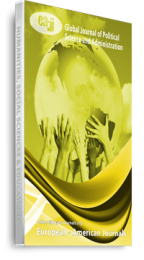This paper aimed at assessing the Impacts of Political Interference in Public Administration. Both qualitative and quantitative approaches were used which involved the use of various data collection methods such as questionnaires, interviews and document review. Data were collected from the sample of twelve public administration officers (PAOs) and eighteen ward executive officers (WEOs) from Kibaha town council. Thematic analysis was used in analysis of qualitative data while correlation, regression and arithmetic mean were used in quantitative data analysis with the help of SPSS soft ware. The key findings included challenges facing public administrators in executing their responsibilities due to political interference. These lead to maladministration, abuse of power, improper conduct, inexcusable delay, poor service delivery and lack of commitment among public staff. This paper concluded that political interference was due to the inadequate power and responsibility separation between politics (policy) and public administration (execution). It is thus; recommended that there should be proper periodic observation of power separation between the two actors. Also it was suggested for periodic performance observation of public officers’ activities which will make easy to ascertain if the public administrator has performed in accordance with his or her expectation, and if he or she has performed, then surely this would serve as an effective leverage against political muscle.
Keywords: Administration, Political Influence, Political Interference, Public Institutions

